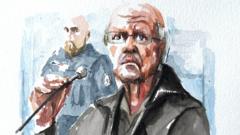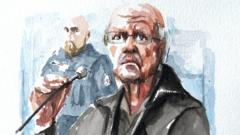Joël Le Scouarnec, a former pediatric surgeon, was charged with sexually abusing 299 patients despite a previous conviction for child abuse imagery. Institutional failures, including inadequate responses from medical authorities, allowed his predatory behavior to continue unchecked.
The Tragic Oversight: A Doctor's Decade-Long Abuse and Institutional Apathy

The Tragic Oversight: A Doctor's Decade-Long Abuse and Institutional Apathy
The unsettling case of Joël Le Scouarnec highlights systemic failures within the French medical oversight system that allowed abuse to persist for years.
In a haunting case that has shocked France, Joël Le Scouarnec, a pediatric surgeon, was arrested and charged with sexually abusing 299 former patients, primarily children. This was not a singular incident; more than a decade ago, he had already faced legal consequences for downloading child sexual abuse imagery. Yet, he was allowed to operate on vulnerable children in a health system that failed to act decisively.
Dr. François Simon, who headed a medical oversight board in Finistère, Brittany, was well aware of Le Scouarnec’s past conviction but did not pursue disciplinary action against him. Instead, he escalated the matter to the Ministry of Health’s departmental branch, mistakenly believing the situation would be handled more urgently. When he testified in Vannes, he expressed regret for the misunderstanding, noting that his board had unanimously concluded that Le Scouarnec's earlier criminal behavior did not breach medical ethics.
The systemic lapses in the healthcare system raise critical questions about the responsibilities of medical boards and the accountability of healthcare professionals. Dr. Simon's hindsight reflects a broader issue within an intricately bureaucratic system that failed to prioritize patient safety over procedural protocol.
As the court proceedings unfold, public protests have erupted outside the courthouse, with citizens demanding justice and demanding to understand how such egregious violations of trust could persist for years without intervention. The unfolding of this horrific chapter sends a chilling message about the need for reform in oversight practices to prevent future abuses.




















